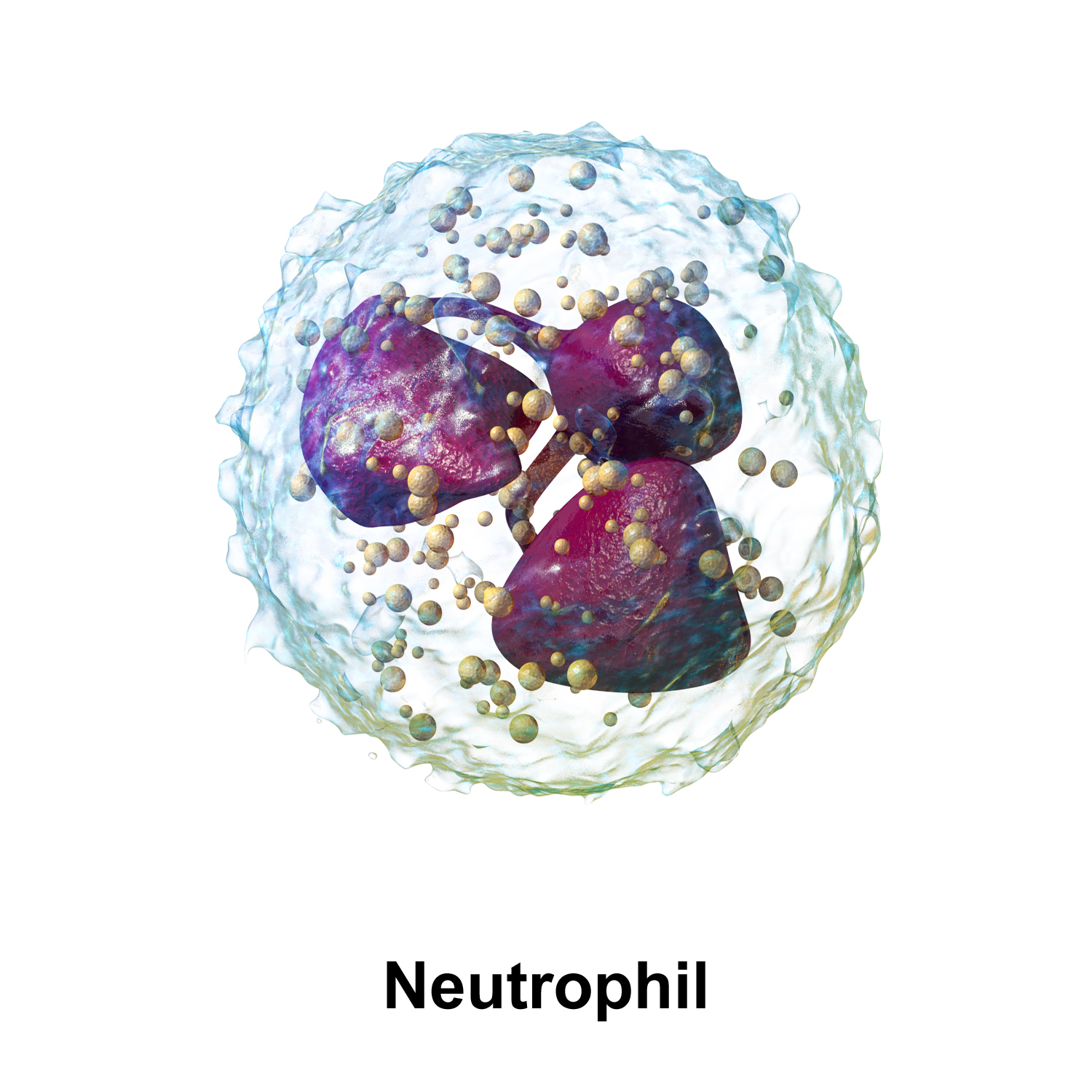The protocol with Ibrance is to go in and have your blood counts tested twice a cycle for the first few cycles to make sure your blood cells (white, red, platelets) remain at safe levels. This is because the CDK4/6 inhibiting action of Ibrance that's supposed to help slow the cancer's evolution can also slow down blood cell production.
So, per protocol, yesterday I had my blood counts checked and I saw my oncologist.
I didn't get horrible news, but it wasn't really good news, either.
It turns out my neutrophils really don't appreciate having their CDK4/6 inhibited. They've dropped down to an Absolute Neutrophil Count (ANC) of 810.
Normal ANC is, according to my lab reports, generally between 1400 and 6600 ANC. Throughout 2014, my ANC remained in the 3000 range, so 810 is not normal in general or for me in particular. And for Ibrance, anything lower than 1000 is considered too low to continue as planned.
Neutrophils are a kind of white blood cell that, according to
Wikipedia, "form an essential part of the innate immune system." So they're not really something to get too careless about.
My oncologist showed me the protocol Pfizer has issued for Ibrance. Per their guidelines for ANC between 1000 and 500, I am off of Ibrance for at least a week, possibly longer, until I can grow back enough neutrophils to be back up at a safer level.
Plus, when they do go back up, I'm not going to be allowed back on the 125mg dose of Ibrance I was taking. I'll start back on 100mg and see how that goes.
I asked my oncologist the obvious question: will this reduce effectiveness? She says that in the clinical trial about 25% of patients needed to lower the dose for one reason or another but it didn't seem to correlate to a direct drop in progression free survival (or something like that, I was honestly still a little distracted by neutrophil numbers). I know it wasn't exactly, "of course not!" but it also wasn't "of course it does!" So at least that's something.
I also just yesterday read about a woman on Ibrance who had to take a full month off with low counts and, after that, was taking the 100mg dose and still had a nice stable scan. I know, I hear you, the plural of "anecdote" isn't "data", but still, it's not a bad sign.
Does it make me a little nervous to be off of Ibrance before I even finish my second cycle? Yes, it does. Does it make me a little nervous to be on a reduced dose of Ibrance when I get back on it? Yes, that, too.
But, on the other hand, I am still fighting the after-effects of my second cold in 6 weeks, so having more neutrophils does have some appeal. And if taking a lower dose can get rid of the sore nose-throat-windpipe side effects I've been be having, that would be a good thing. And maybe the headrushes when I stand up and the general fatigue that's been hitting me in the afternoons, I wouldn't mind getting rid of those, too.
But, none of these other side effects seem like deal breakers for me if the drug is working. In fact, if I wasn't taking Ibrance and being aware of things like that, I'm not sure I'd really give them much more thought beyond a, "hmm, that's odd," sort of response. Probably followed by the same strong coffee to get through the day and early bedtime for the fatigue. Same as I've been resorting to lately. But, it's probably not something I'd have been super concerned about without Ibrance.
Of course, bacterial and fungal infections, inability to fight off the naturally occurring bacteria in your mouth and digestive tract, septic shock, and things like that
are serious deal breakers. And that's what is increasingly likely if my neutrophils continue to drop and head down past the 500 ANC range.* Which is, of course, why Ibrance is off the table until I can grow back some neutrophils.
Because it doesn't really make much sense to take Ibrance to try and hold off death from cancer just to turn around and die from septic shock. That's pretty obvious.
So I'm not an Ibrance drop out (hooray, me!) but I am, more or less, in Ibrance detention hall. And no idea for how long. But with any luck, when I go back to retest next week, I'll have some better numbers and be ready to get back into the Ibrance club.
In the meantime, if you need me, I'll be the one sitting over there in the corner studiously working on growing neutrophils.
___
* I don't really know what the protocol is if my nuetrophils were to get below 500, but my guess is there'd be some Neulasta injections or other interventions. The first step is to do what we're doing: stop killing those neutrophils. But if it got worse anyway, my guess is they'd take steps. I do know they're watching me and aren't going to just sit back and watch sepsis set in, so don't be concerned about that.

